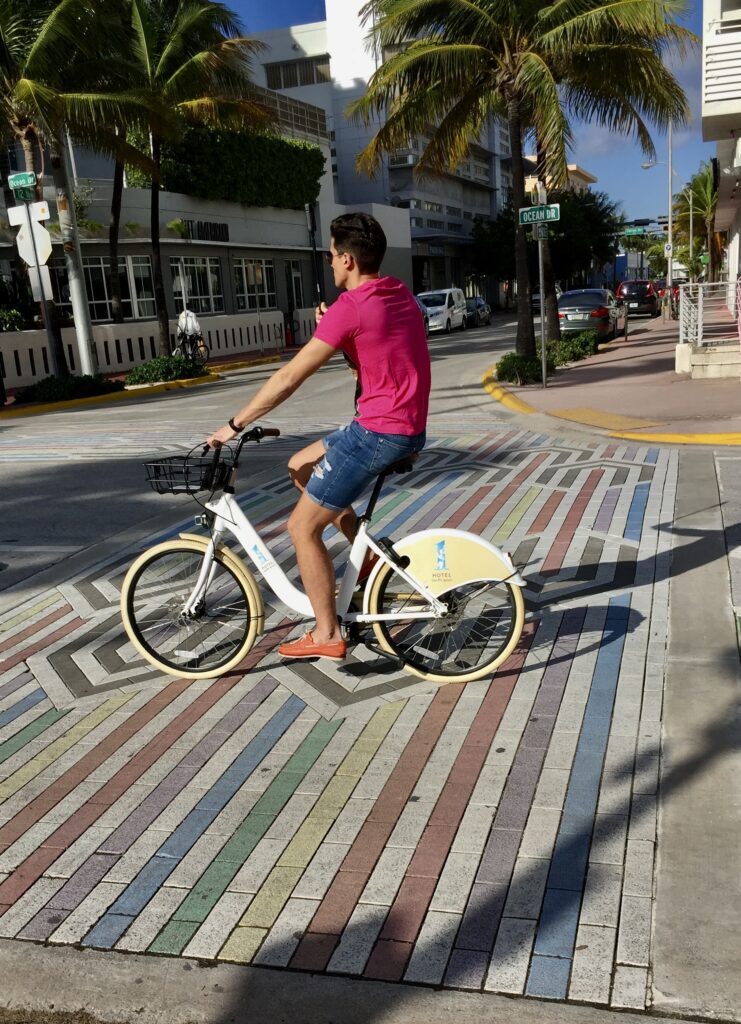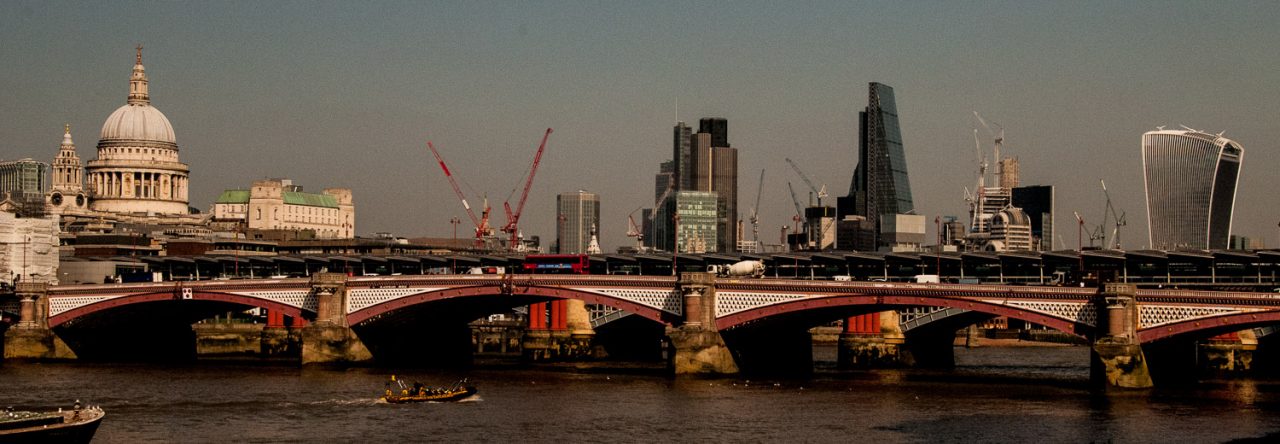I usually only post my holiday snaps on Instagram but I’m making an exception this week after my visit to Miami South Beach. This is partly because I know I have a number of Art Deco fans among my subscribers, but also because I was just so impressed with what has been retained and restored in the Ocean Drive district where we were staying.
Here are views looking north …
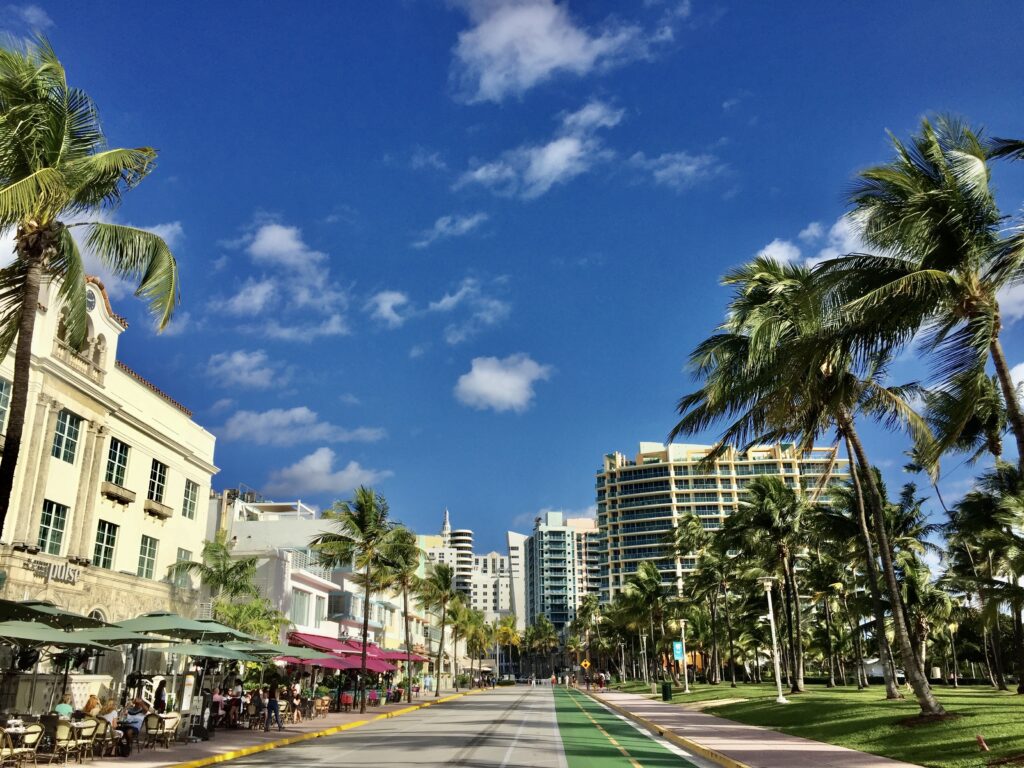
… and south …
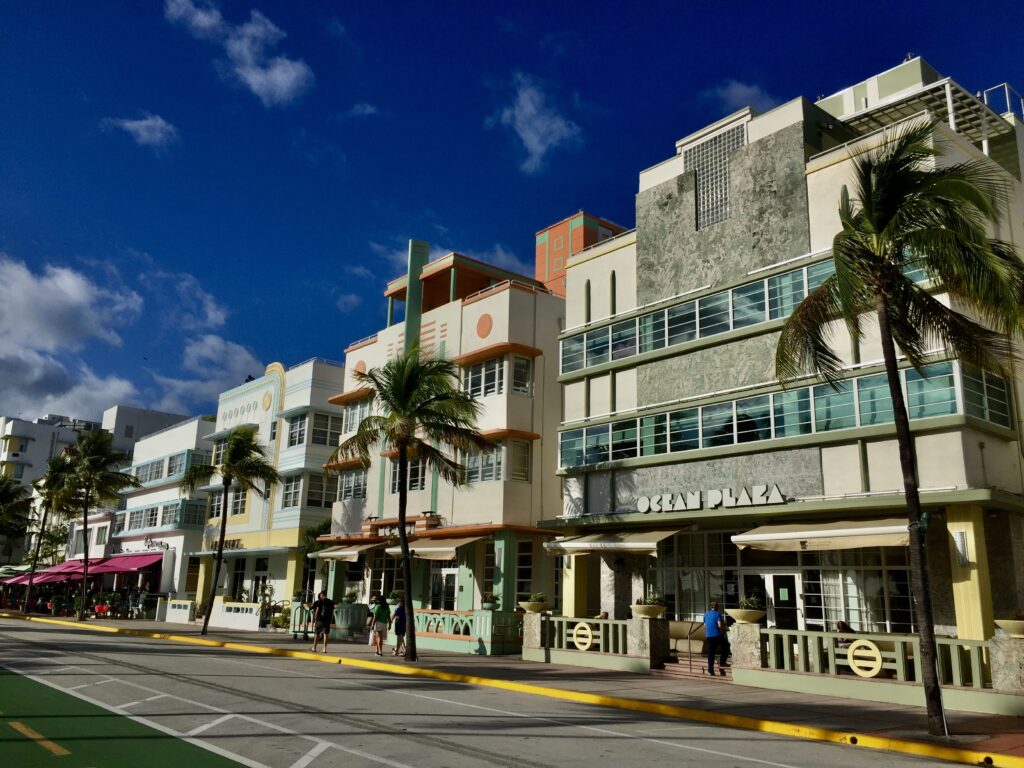
Here are my favourite buildings and what I have been able to find out about them.
The McAlpin Hotel has been described as follows: One of the finest examples of Art Deco architecture in Miami with its perfectly symmetrical design and eye-catching Miami pastel hues of pink and turquoise. Look for the cute face formed in the center of the building by three windows and the dividing lines. It was designed in 1940 by Lawrence Murray Dixon, considered one of the great minds in the Art Deco movement …
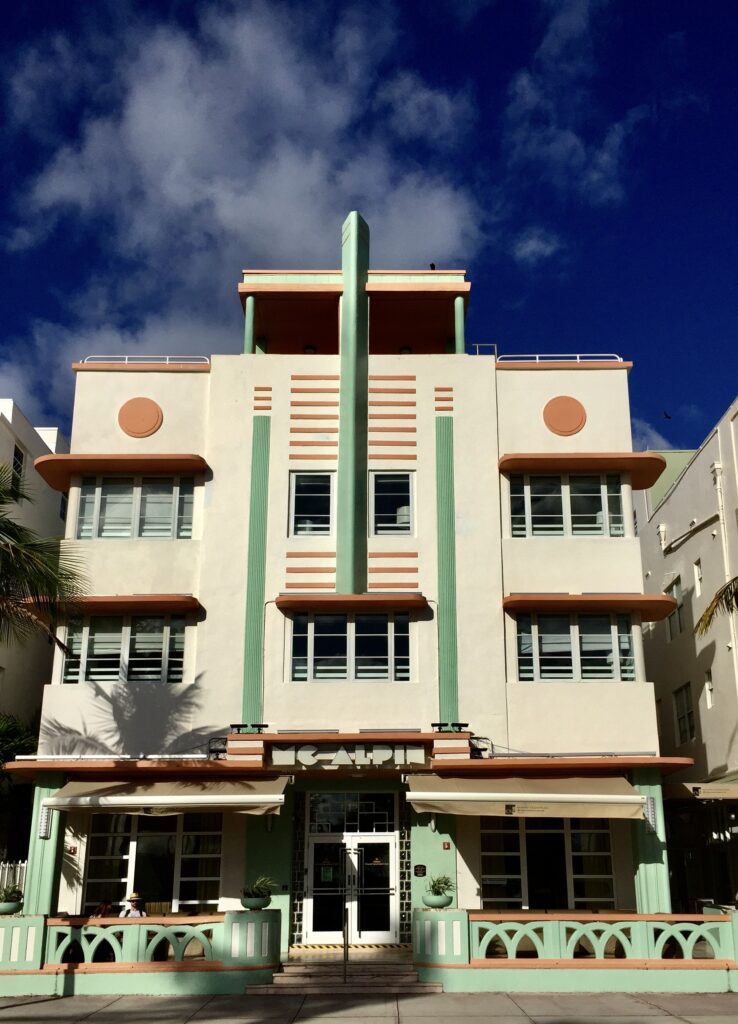
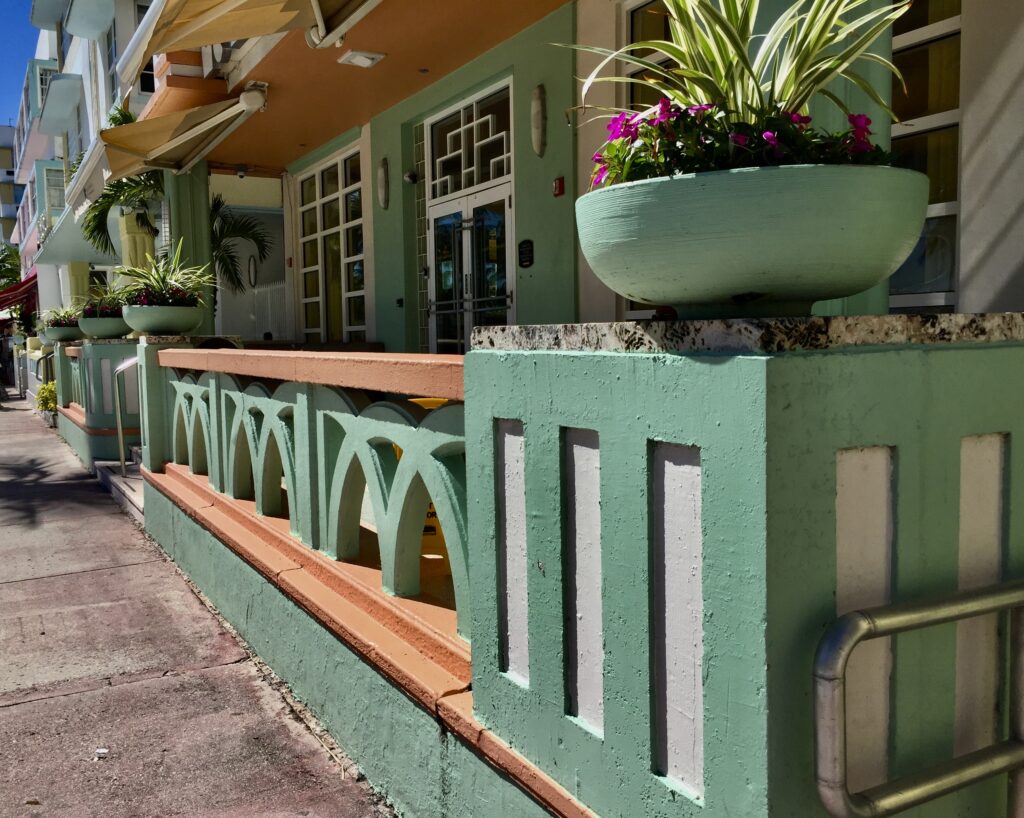
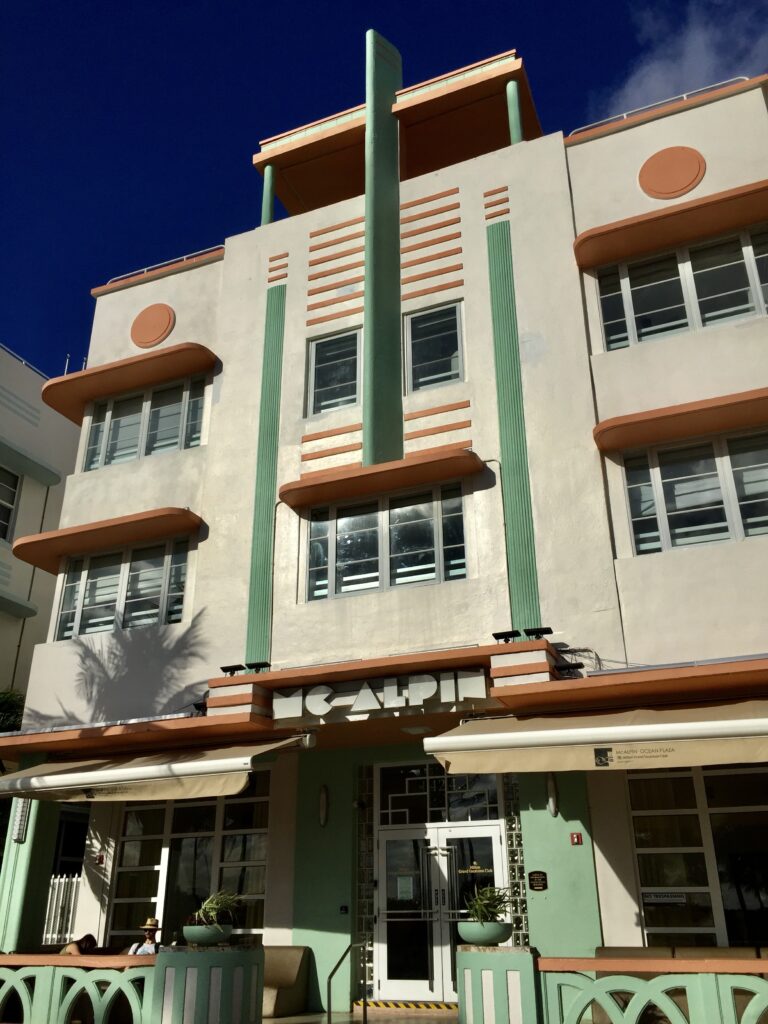
In the evening …
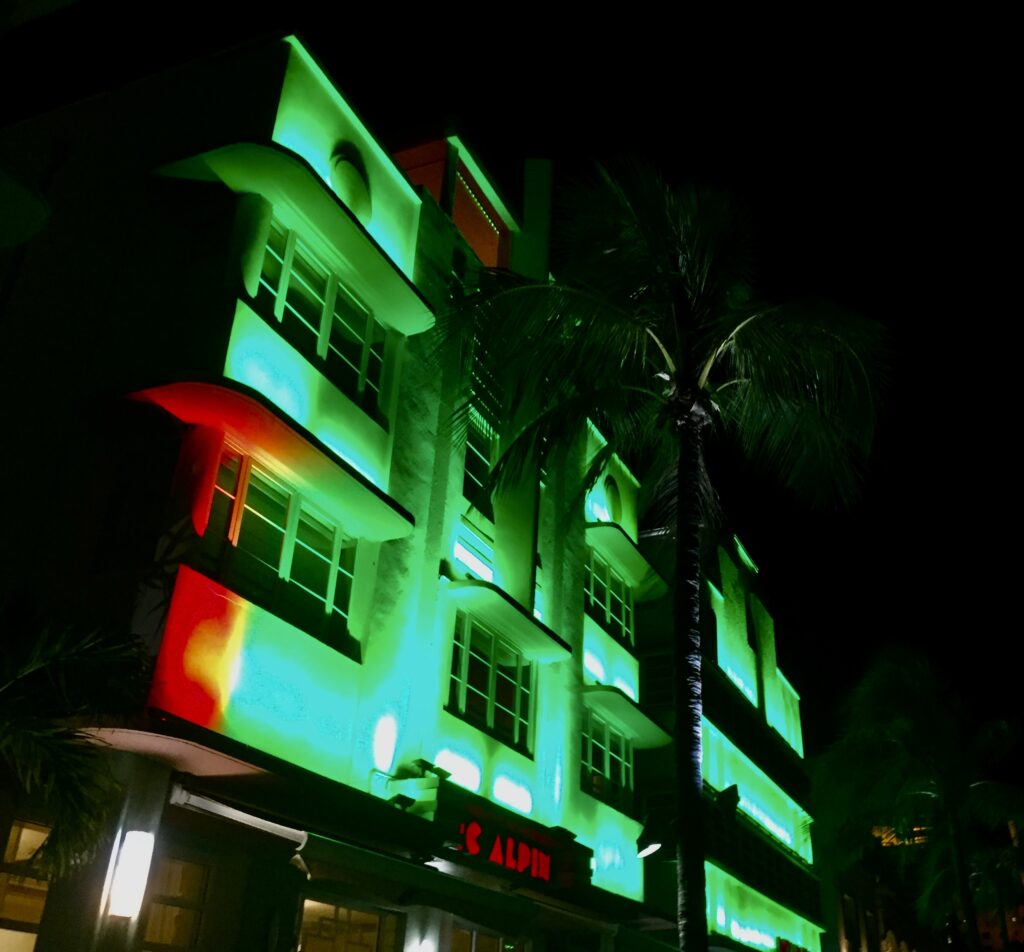
Next door, and by the same architect, is the Ocean Plaza, built a year later …
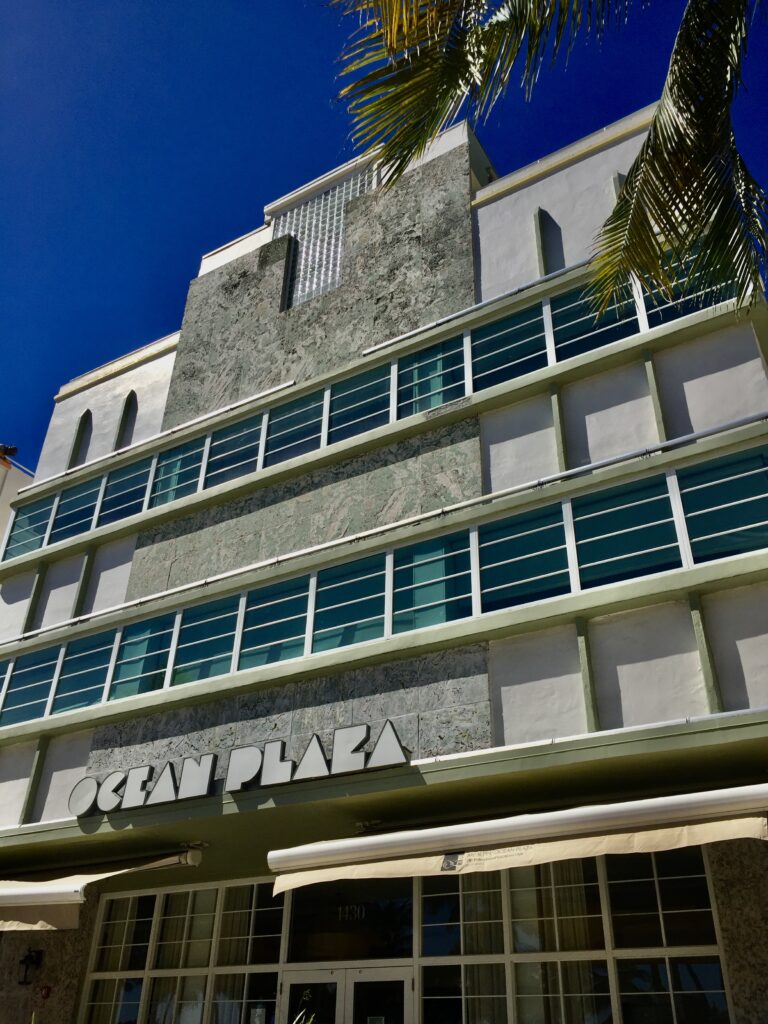
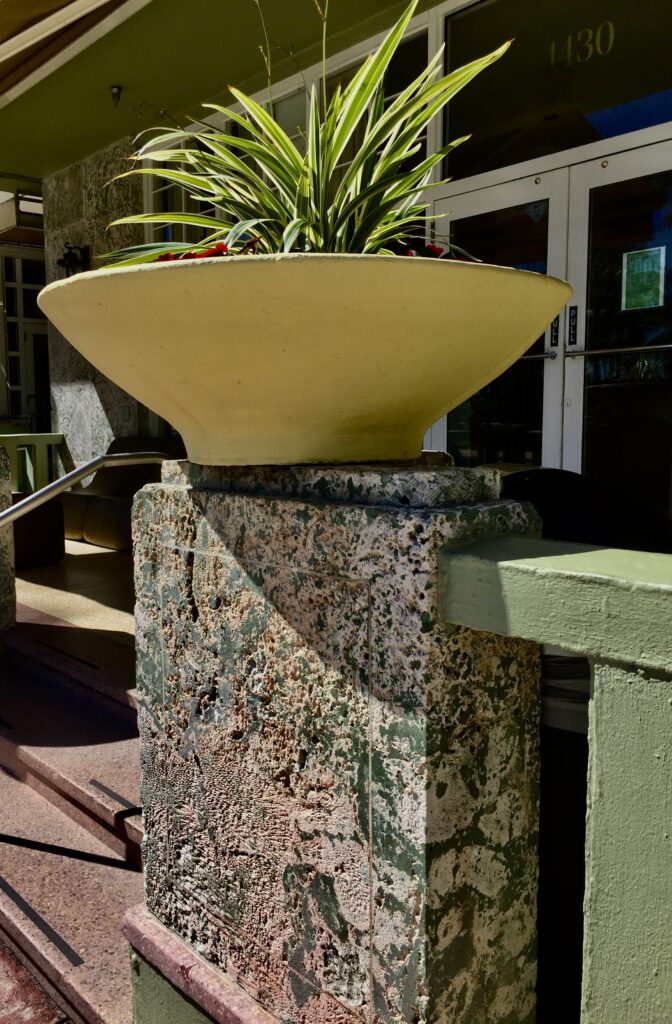
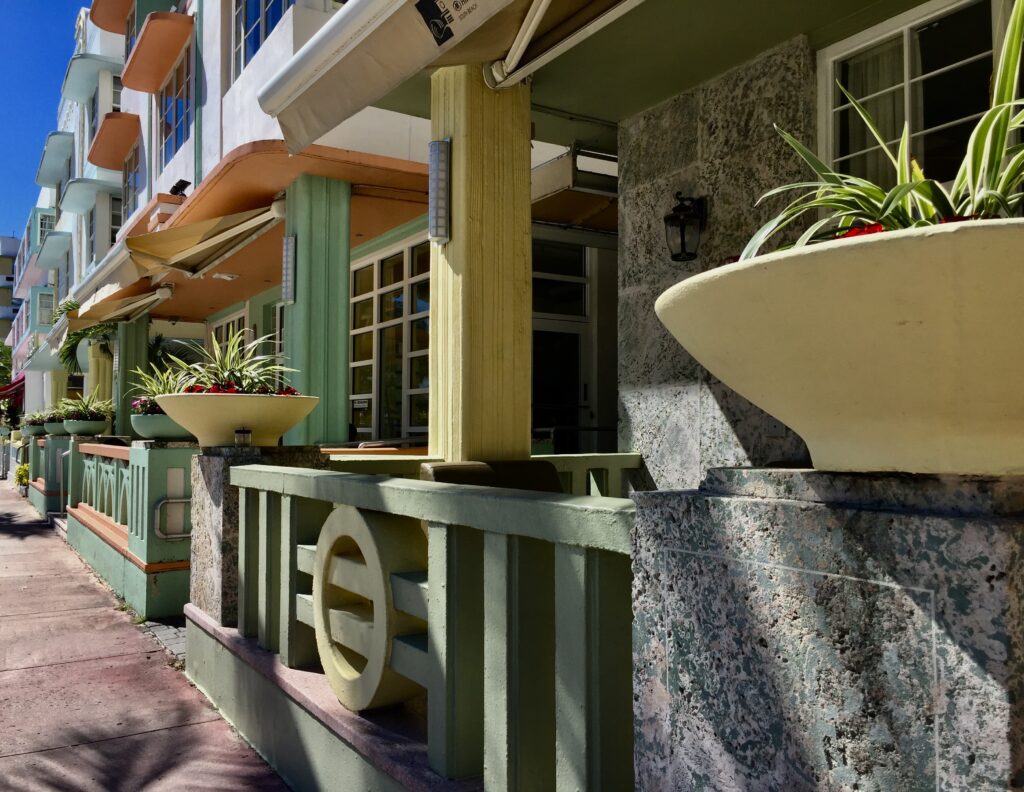
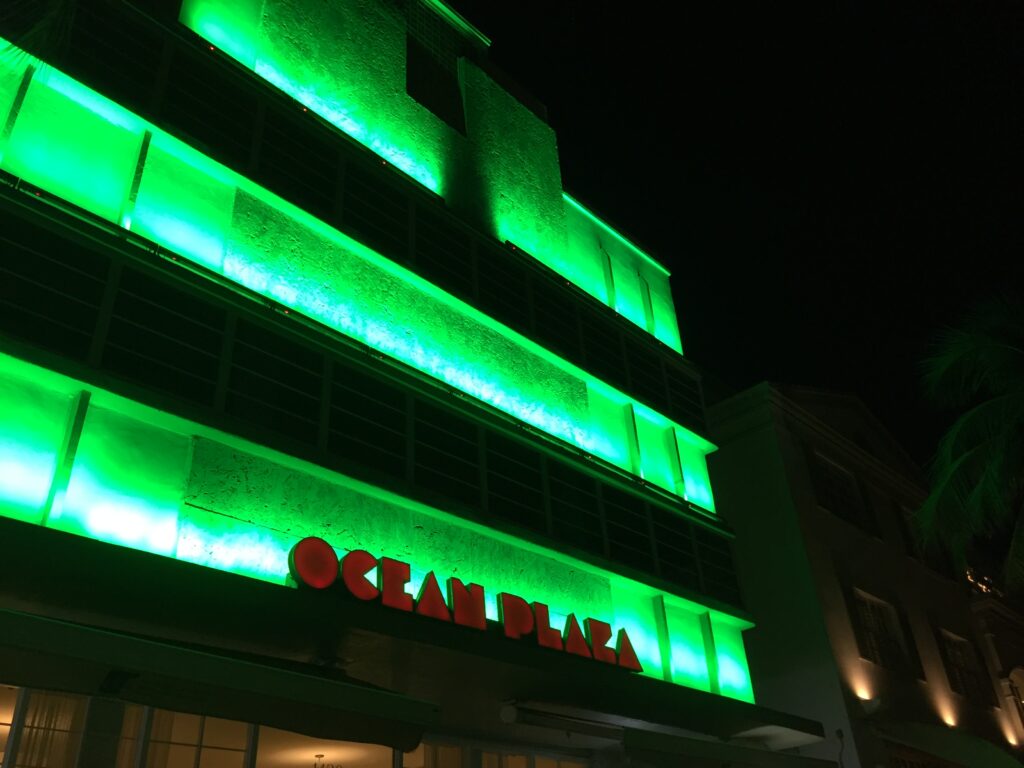
Built in 1937, the Leslie Hotel is described as follows in the architectural guide book : Tripartite symmetry on primary facade; Vertical racing stripes; Eyebrows; Large signage of hotel name; Ziggurat parapet roofline; Minimal additional ornamentation.
I like the use of the term ‘eyebrows’, so appropriate …
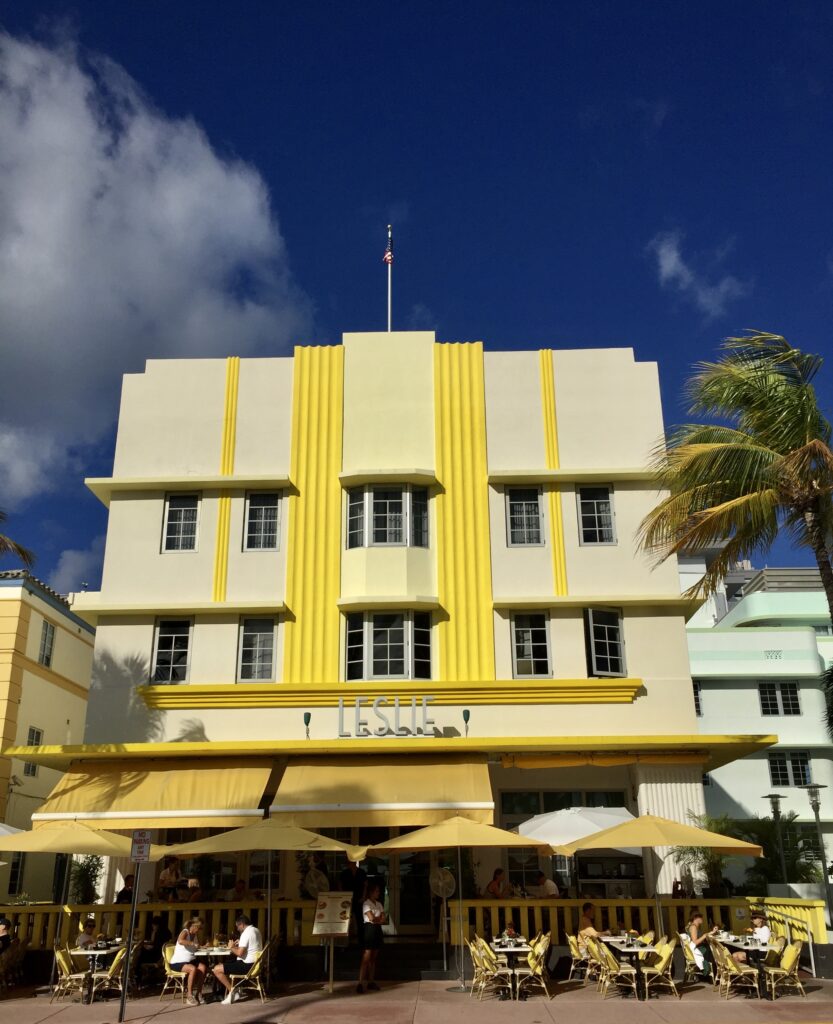
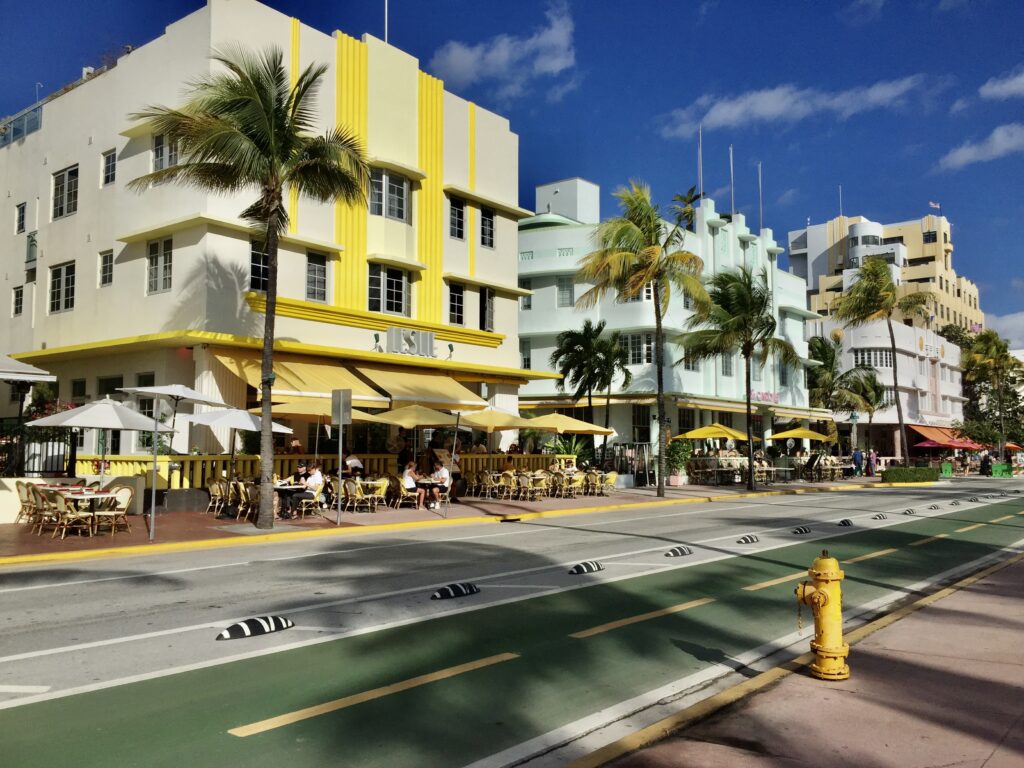
The Cavalier South Beach Hotel was one of the first hotels ever to be built on Ocean Drive and was designed by architect Roy F. France in 1936 …
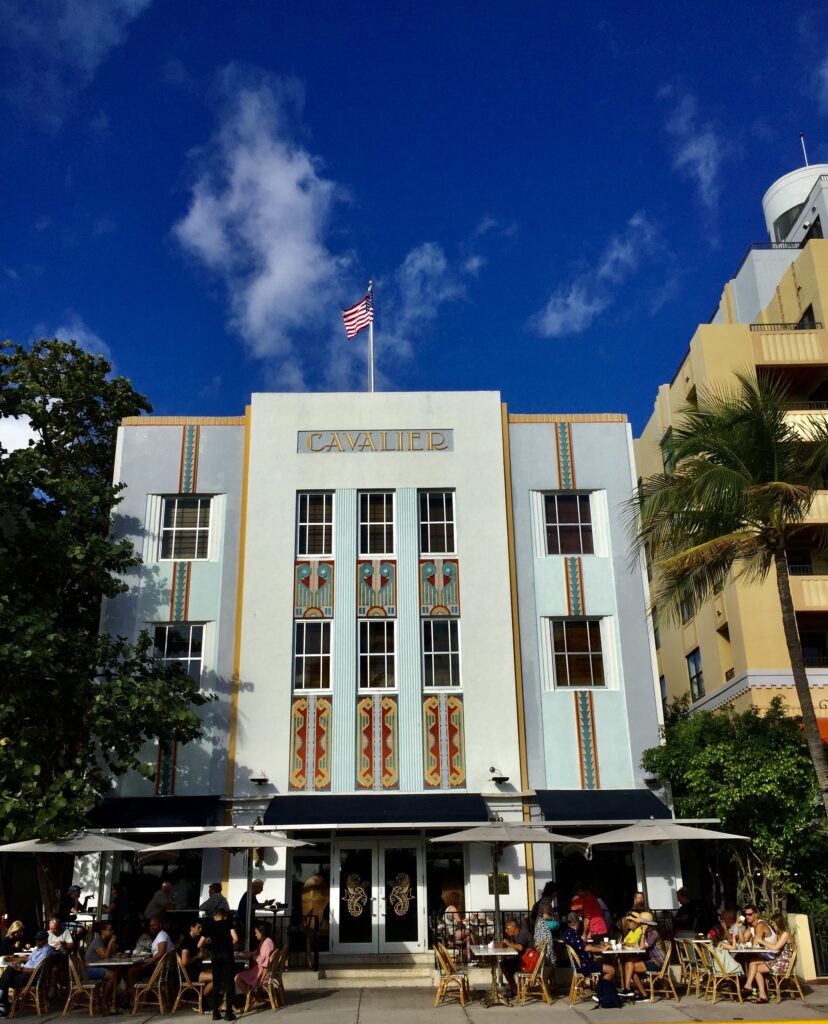
‘Unlike most Art Deco buildings in the area, using horizontal lines as the main feature in their design, the Cavalier bucks this trend by going for a more vertical style. The decorative stucco friezes outside the building draw your eyes upward. As a result, the hotel looks strikingly different from the nearby structures’ …
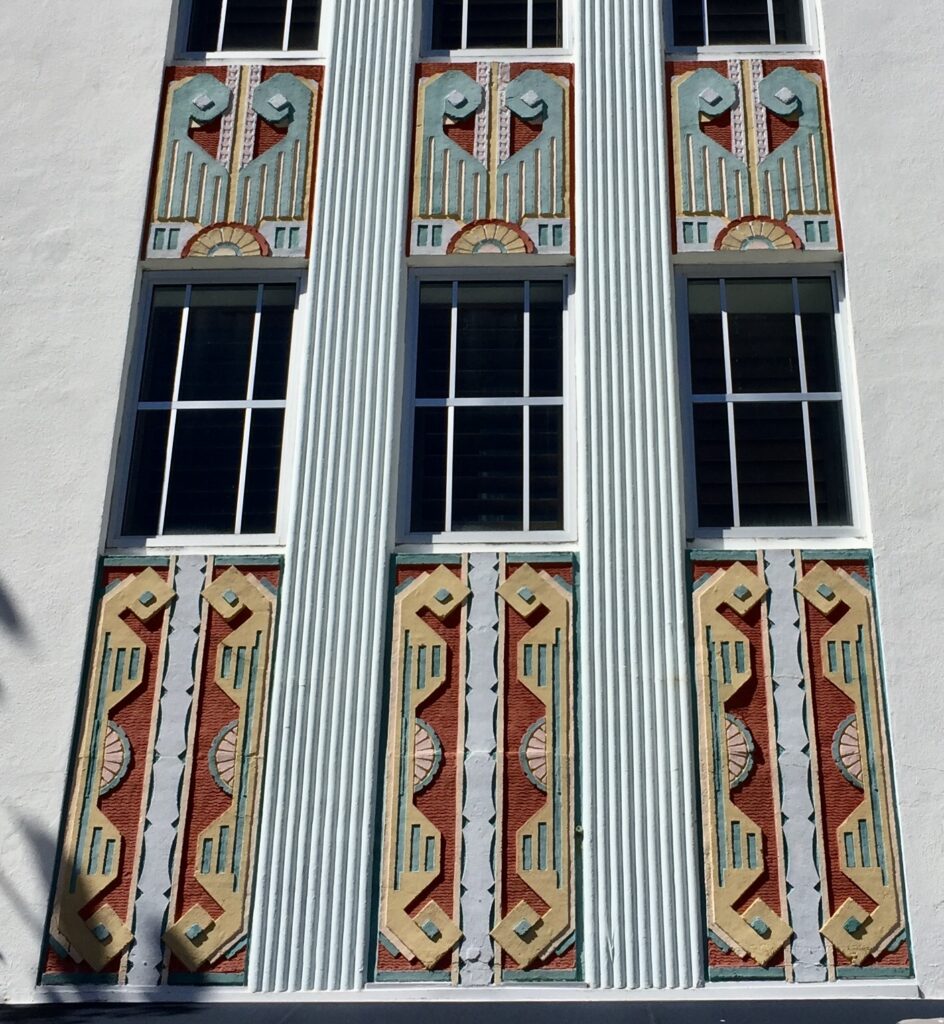
And now four hotels designed by Henry Hohauser.
The Penguin was built in 1948 …
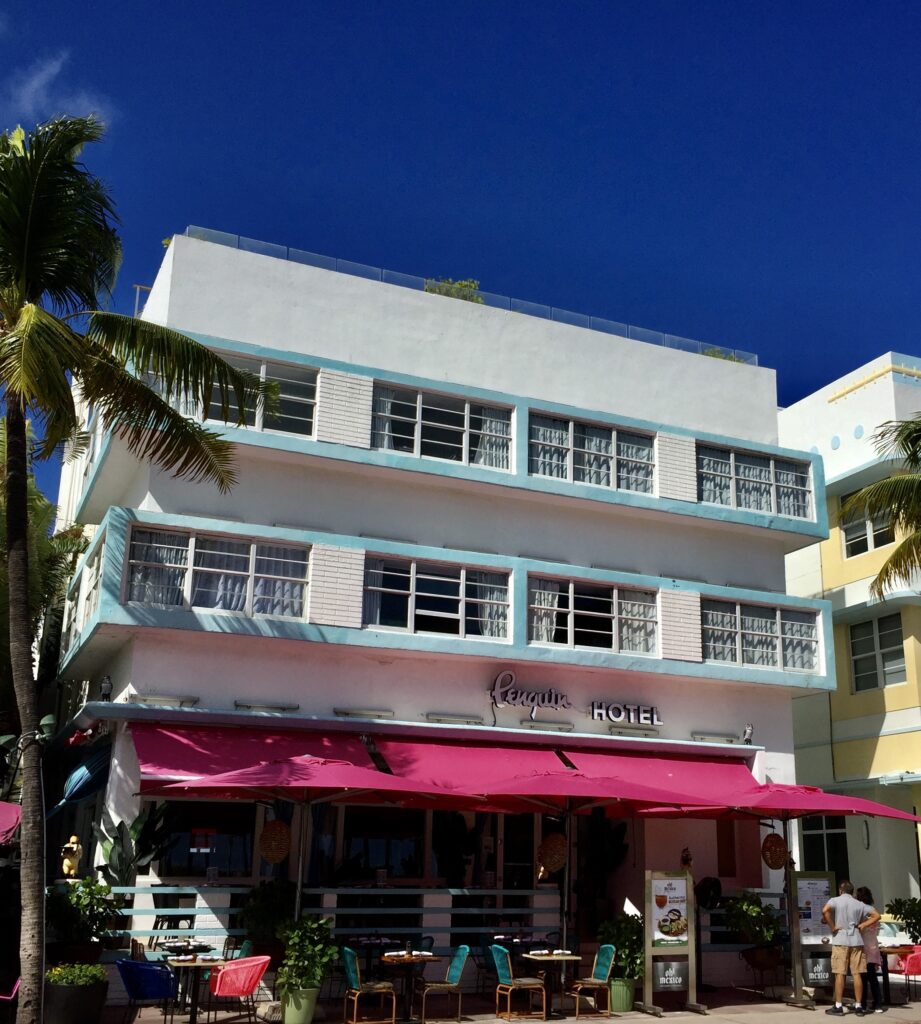
Cute penguins try to entice you in …
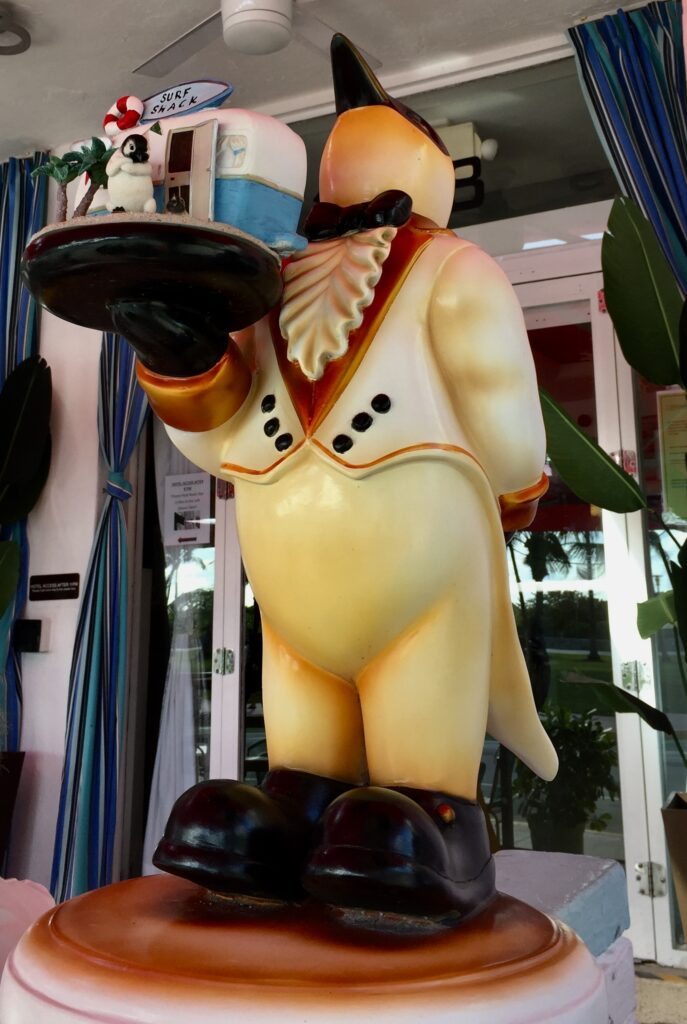
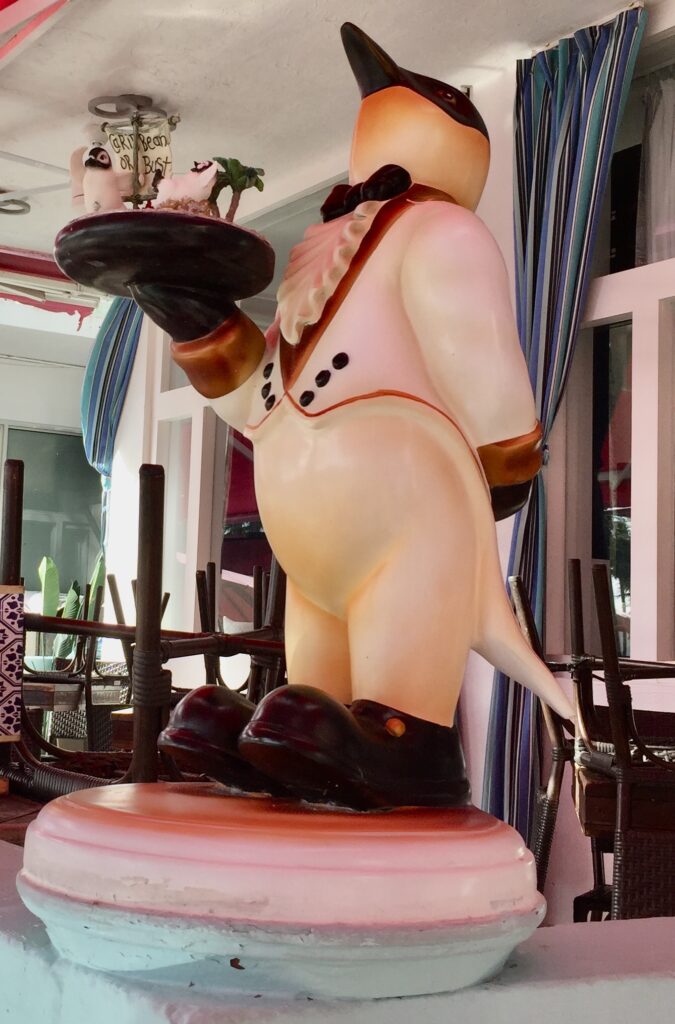
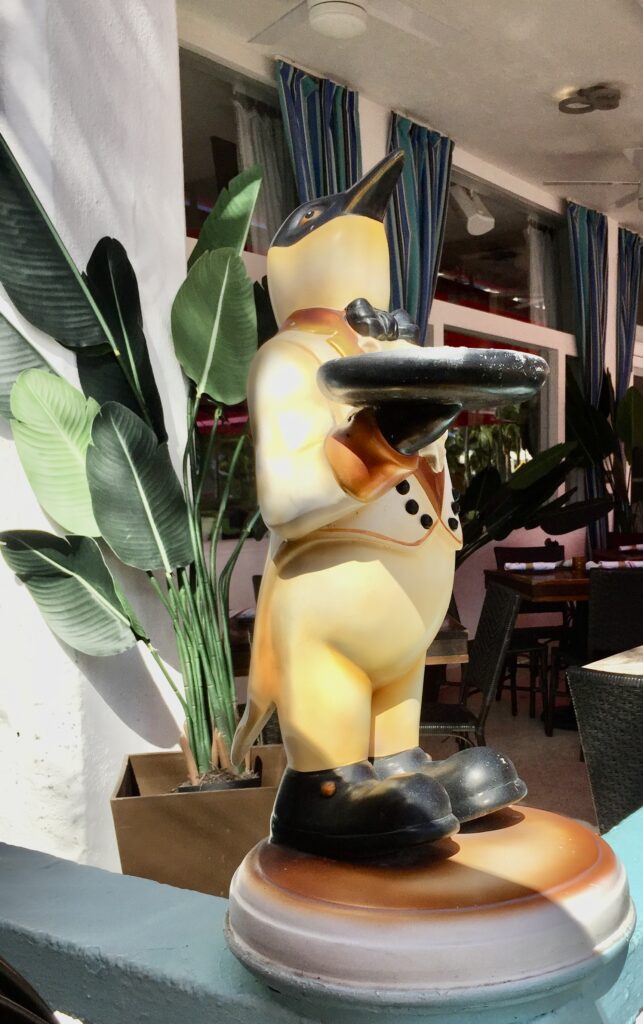
Then there’s the Congress Hotel (1936) ..
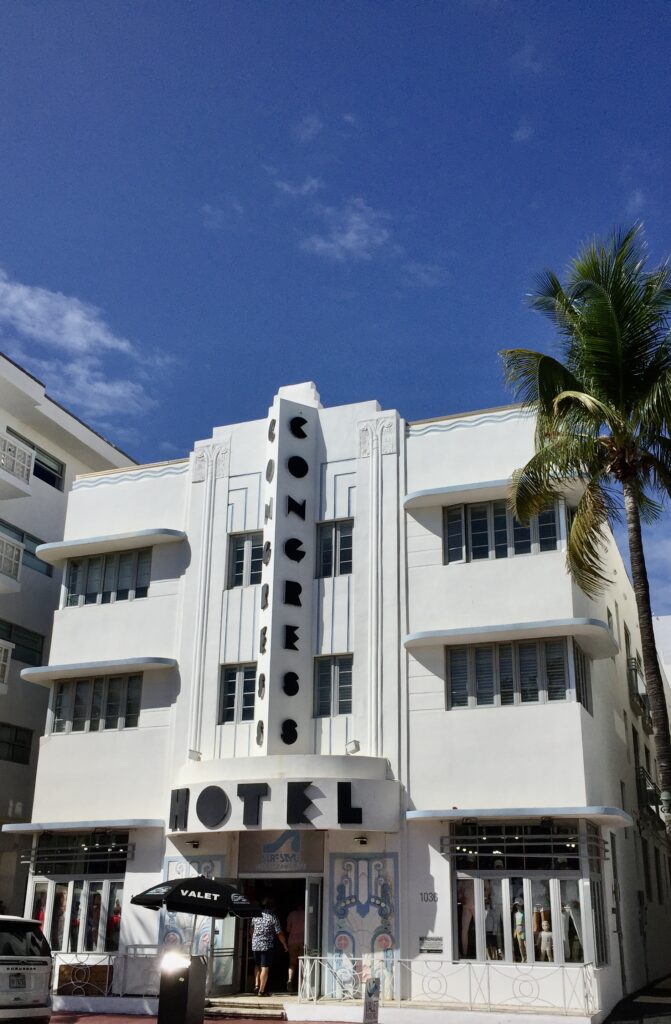
The decoration by the door is a nice touch …
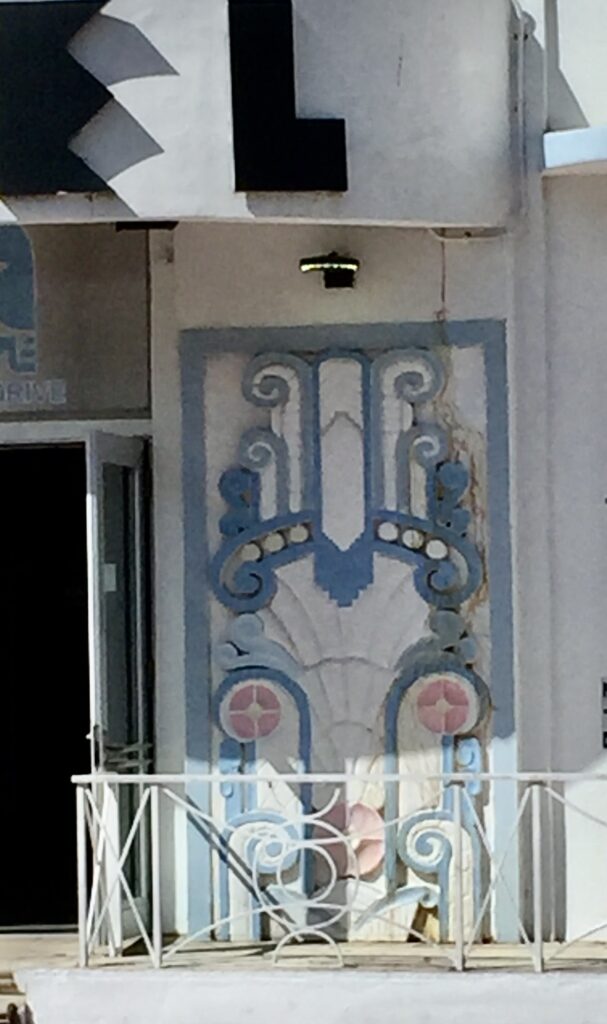
Also by Harry is The Crescent (1938) …
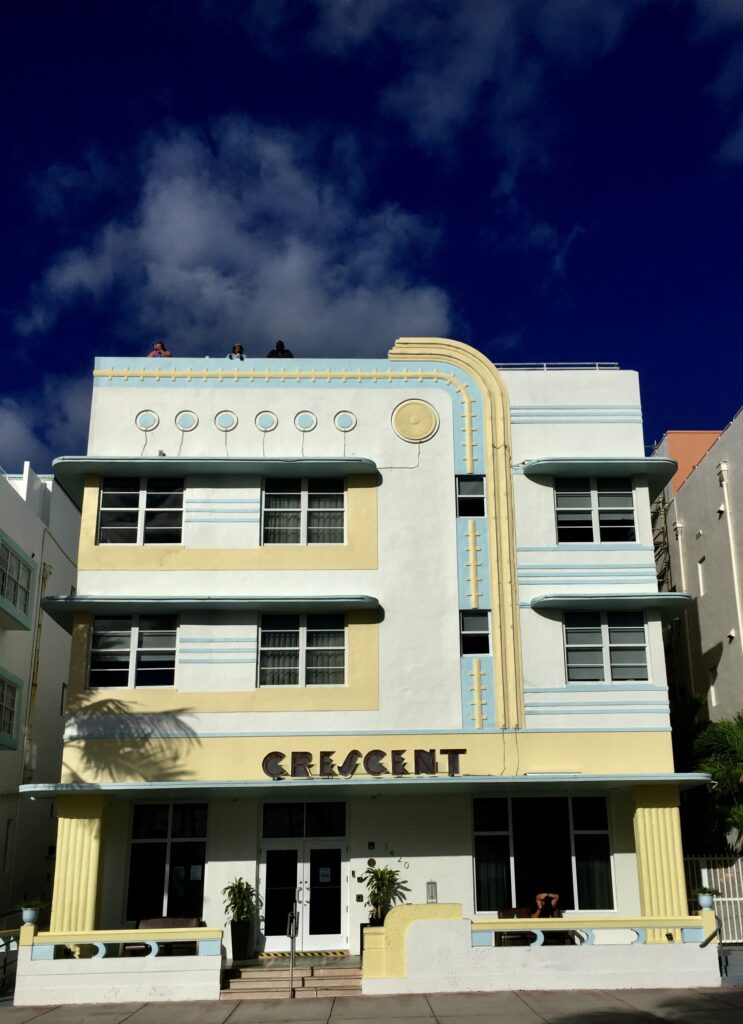
‘It has relief decoration, a kind of railroad track design, that cuts vertically through the windows and continues to outline the top as well as the circular discs that add a geometric motif’ …
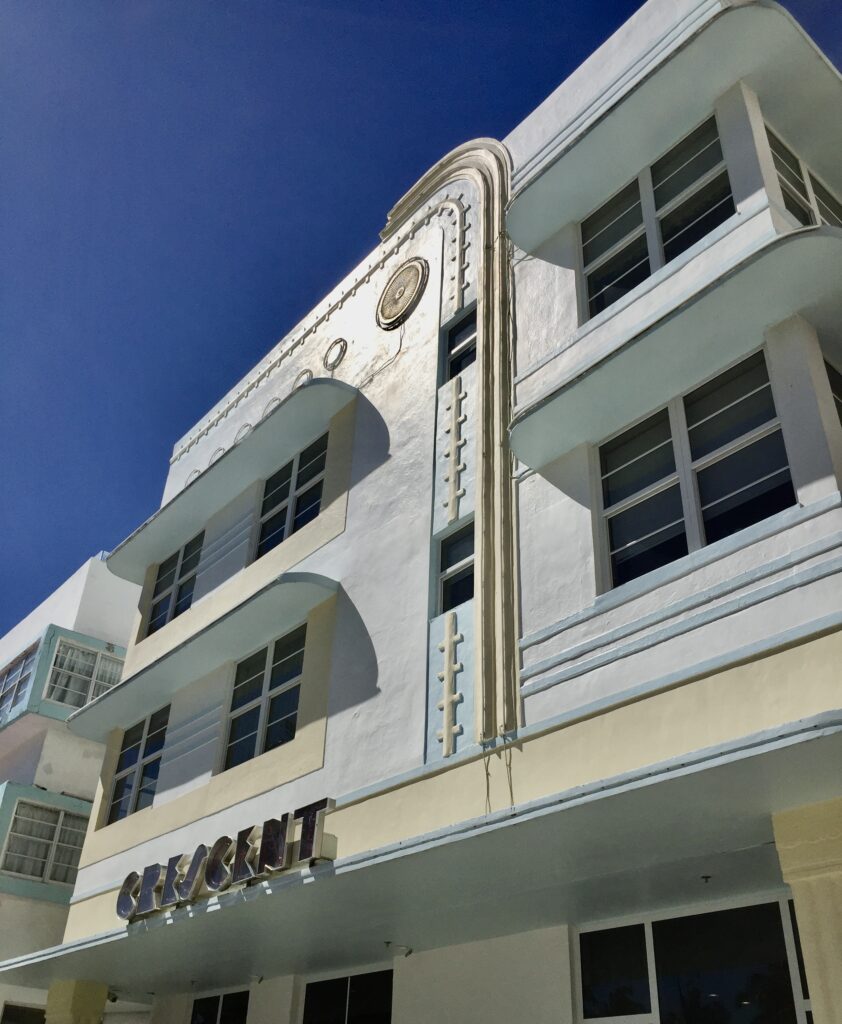
And finally, by the same architect, The Cardozo (1939) …
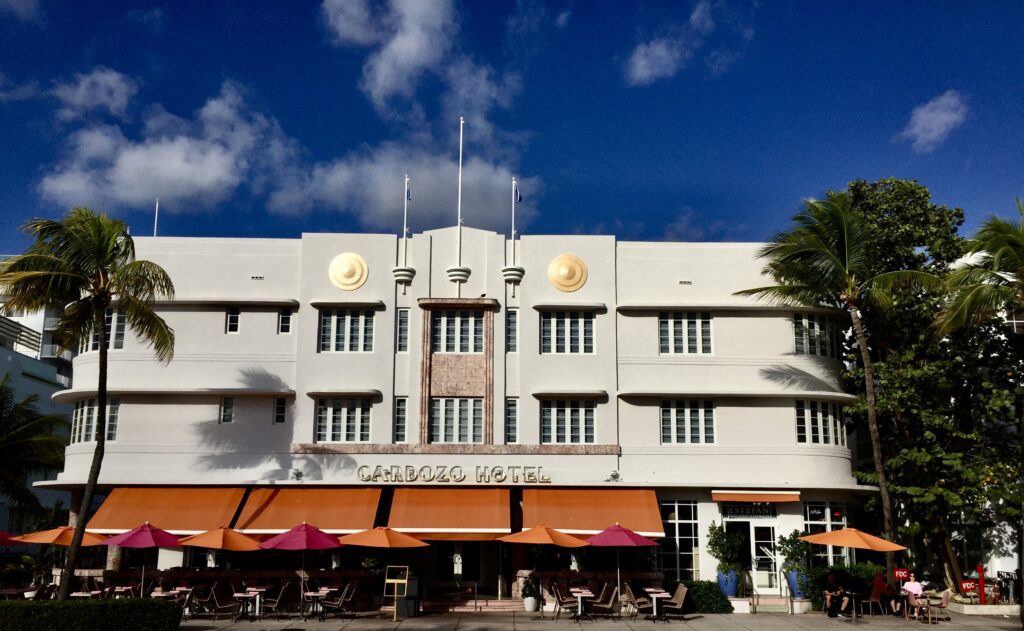
Built in 1939, the hotel was named after Benjamin Cardozo, one of the first Jewish jurors appointed to the US Supreme Court …
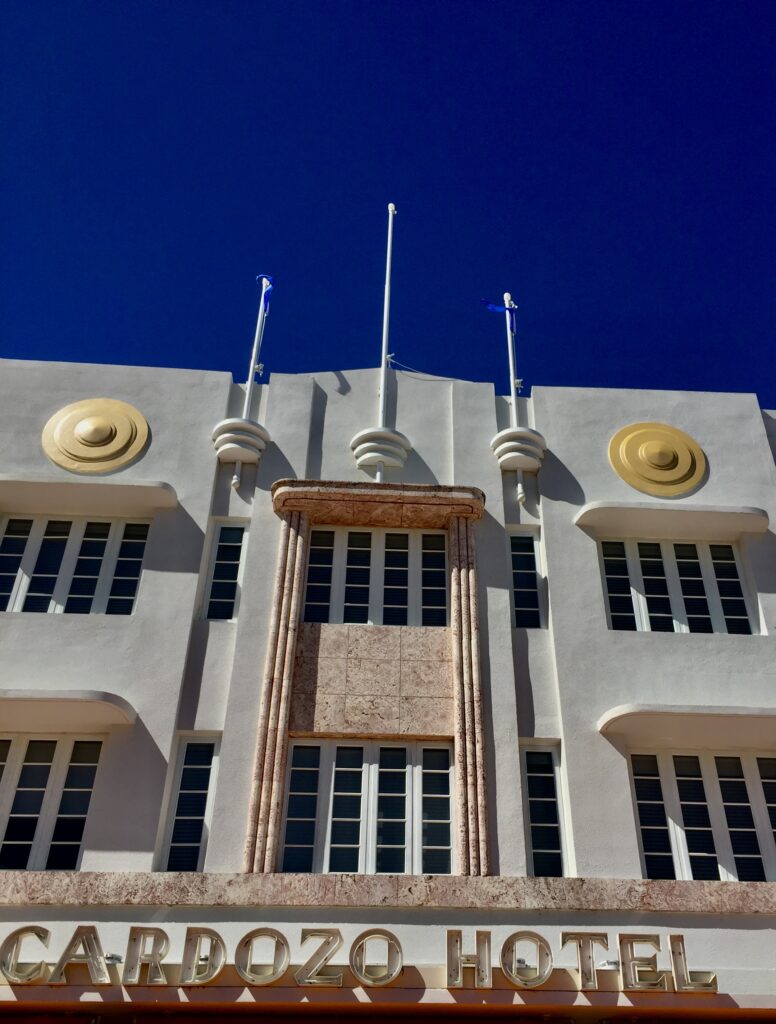
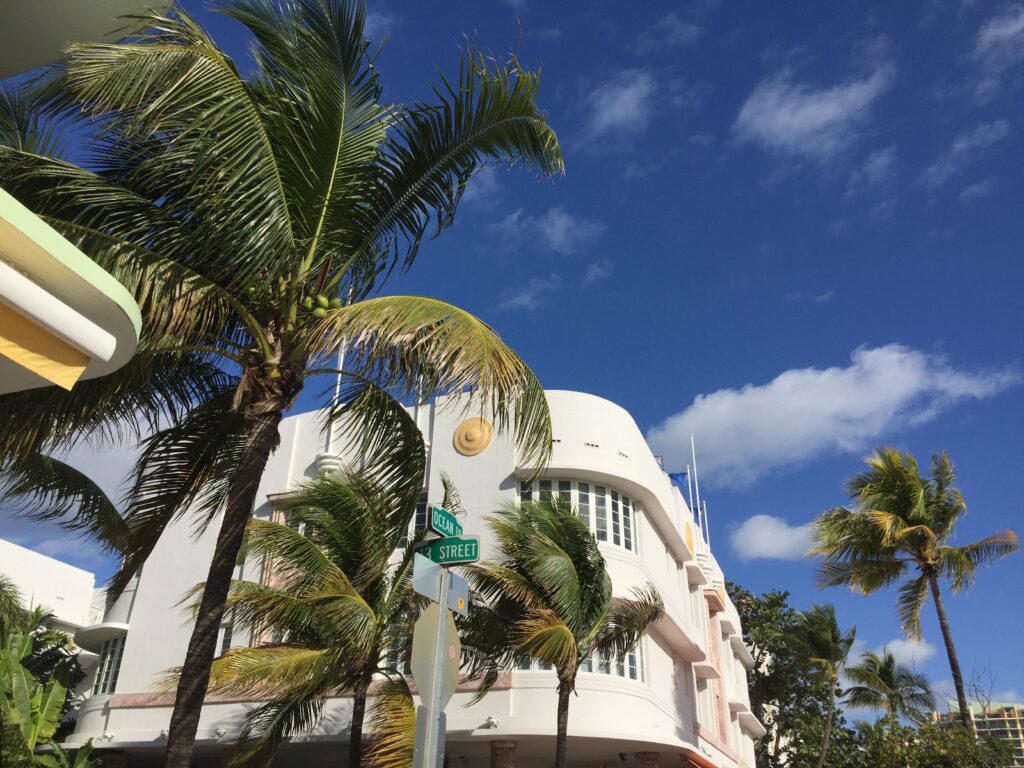
The nearby Carlyle looks rather unusual …
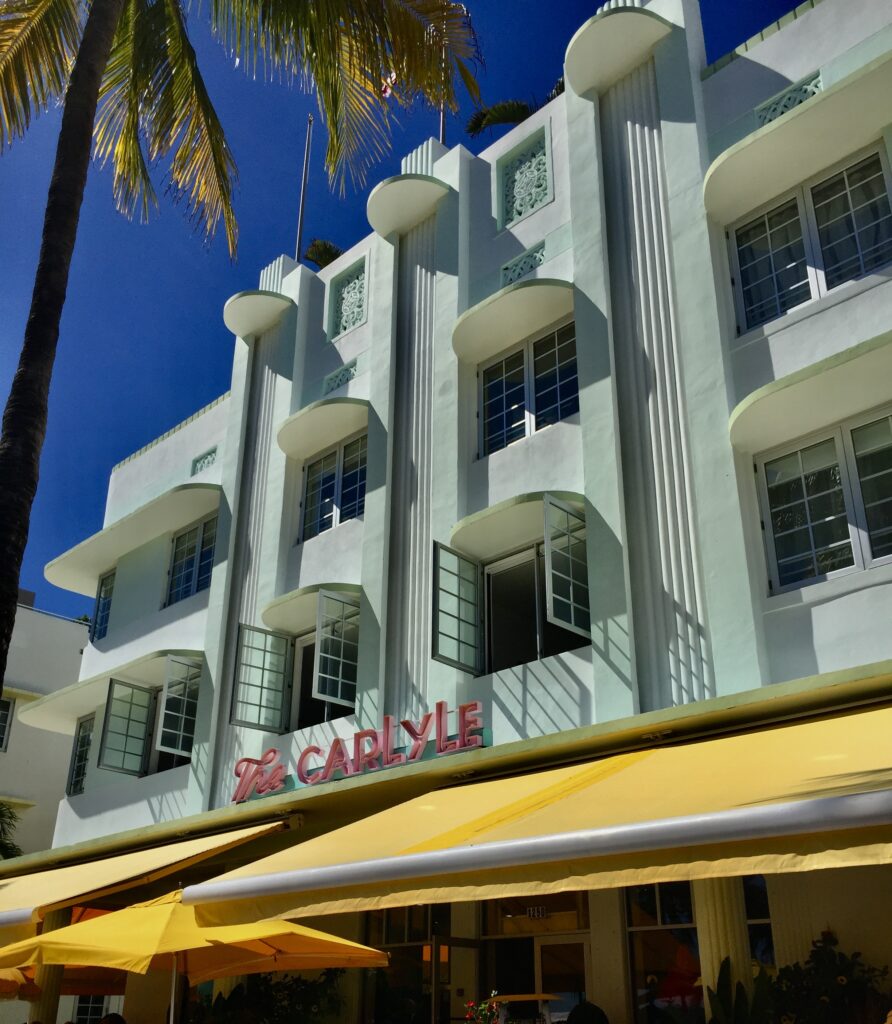
The architectural guide book says : ‘A mainstay of Miami’s Ocean Drive, The Carlyle represented an evolution of the Art Deco style that had dominated architect Richard Kiehnel’s previous works, while still retaining standards like the rule of thirds and elegant curvatures nestled among sharp geometry.
Opening in 1941 with a sparse colour palette of white and sea foam green, the Carlyle is a significantly more understated and nuanced take on the bright pastel colorways seen on other South Beach hotels like The Pelican’ …
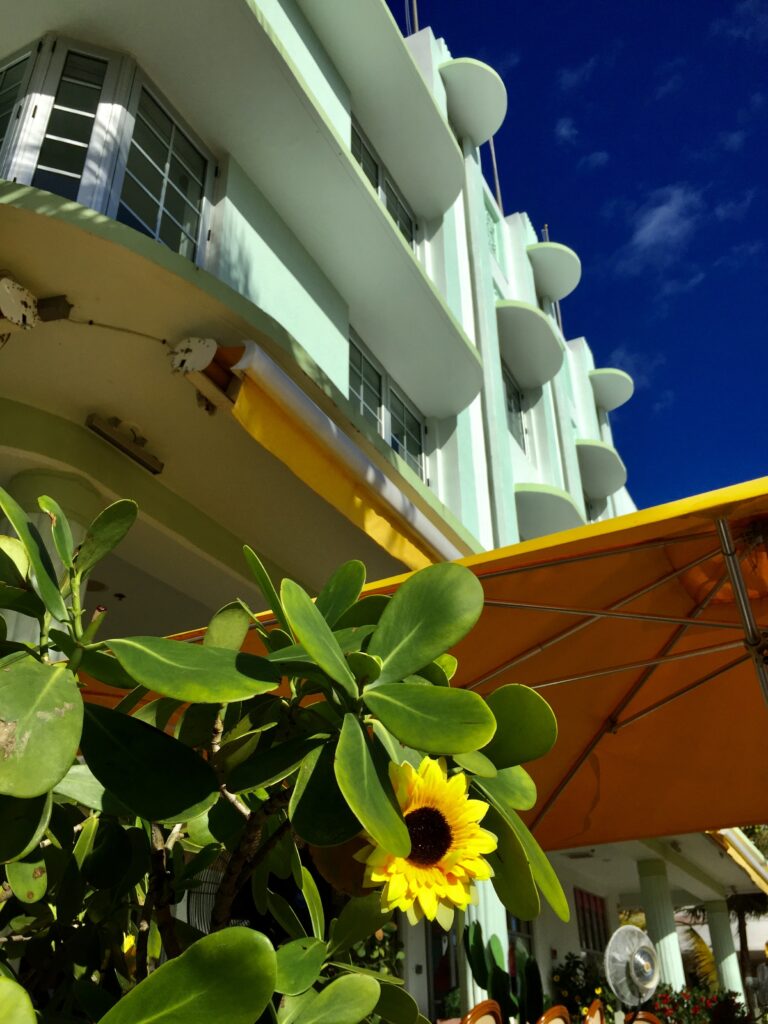
The Winter Haven Hotel – here’s another excerpt from the Guide Book : The Winter Haven Hotel … was designed by Albert Anis and opened in 1939. Taller than the typical South Beach Art Deco hotel, it still has the typical tripartite front and extended eyebrows around the corners. The notched central bay includes even the windows. A canopy supported by fluted columns accentuates the front. The upper stories above the canopy are dramatically supported by these heavy fluted columns’.
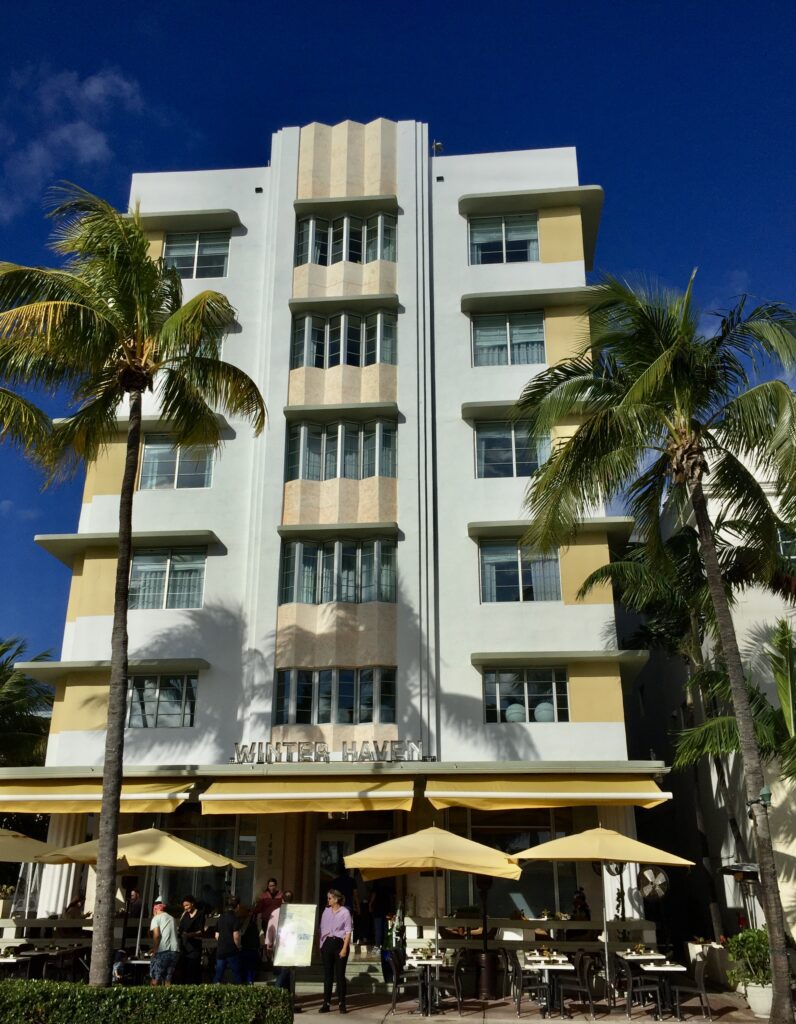
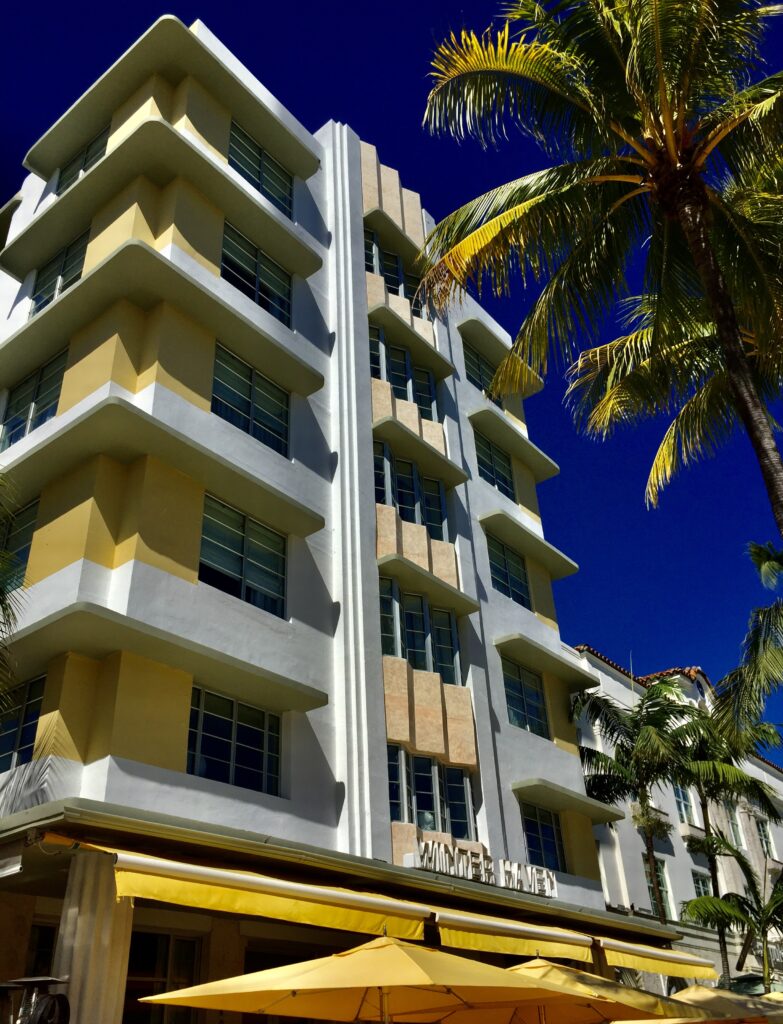
These are just a few examples of the Art Deco delights of Miami. They were for a long time under serious threat of demolition but were rescued by the efforts of a wonderful, tenacious lady called Barbara Baer Capitman who is commemorated with this sculpture …
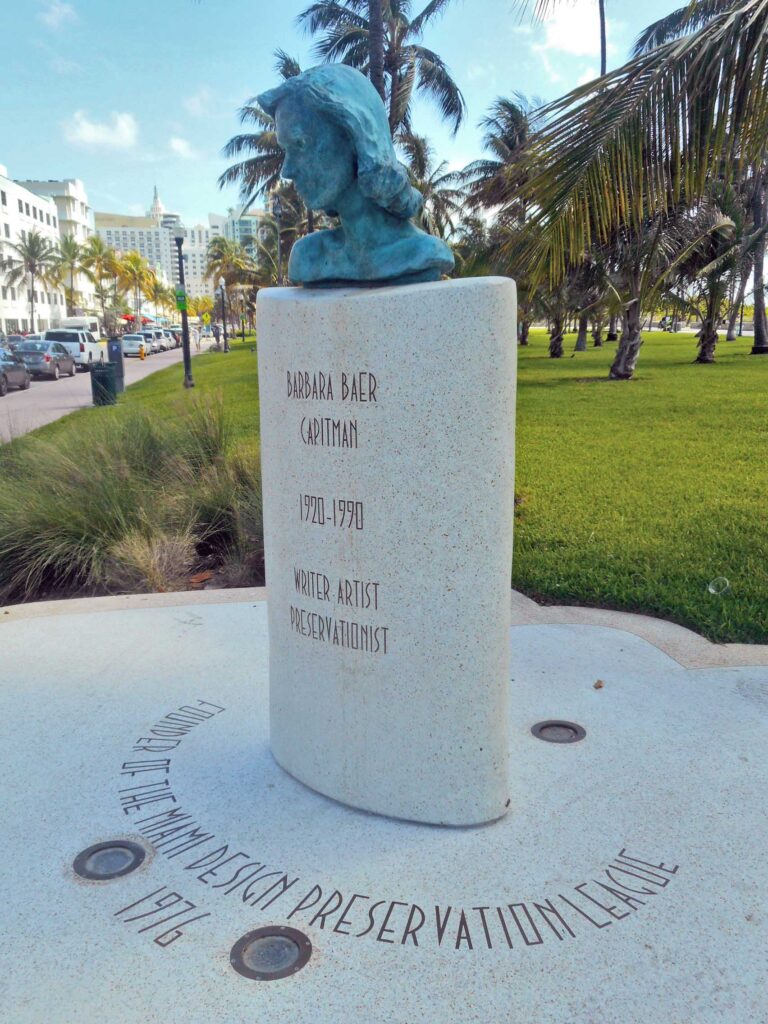
Read more about her here.
By the way, if you’re feeling in a revolutionary mood at the moment and you want to start setting up the barricades, this is the man to contact …
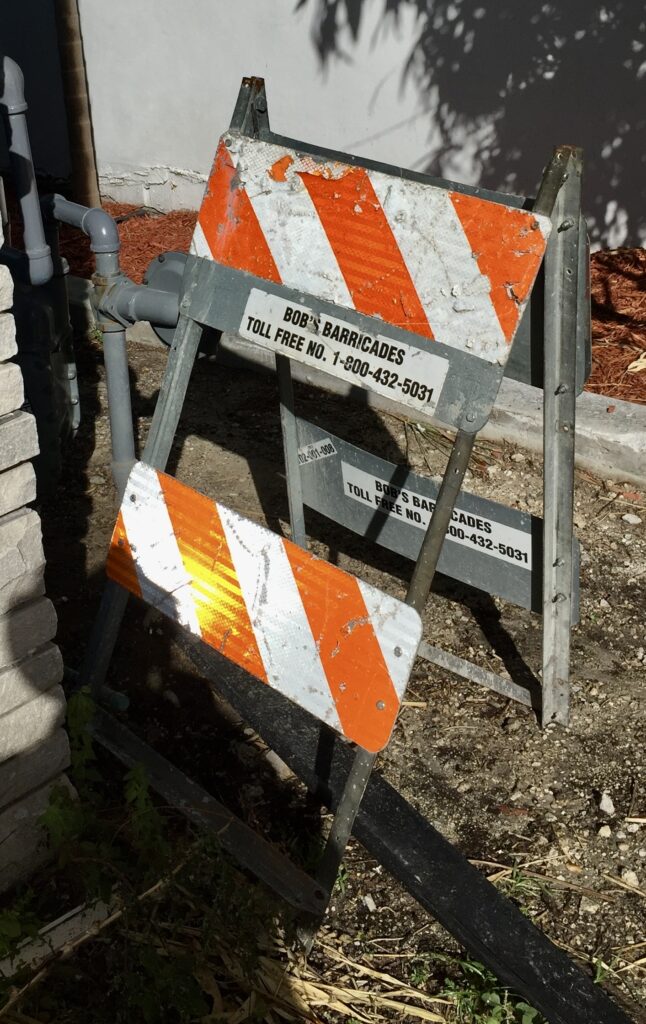
I’ll be back to writing about London again next week.
If you would like to follow me on Instagram here is the link …
https://www.instagram.com/london_city_gent/
